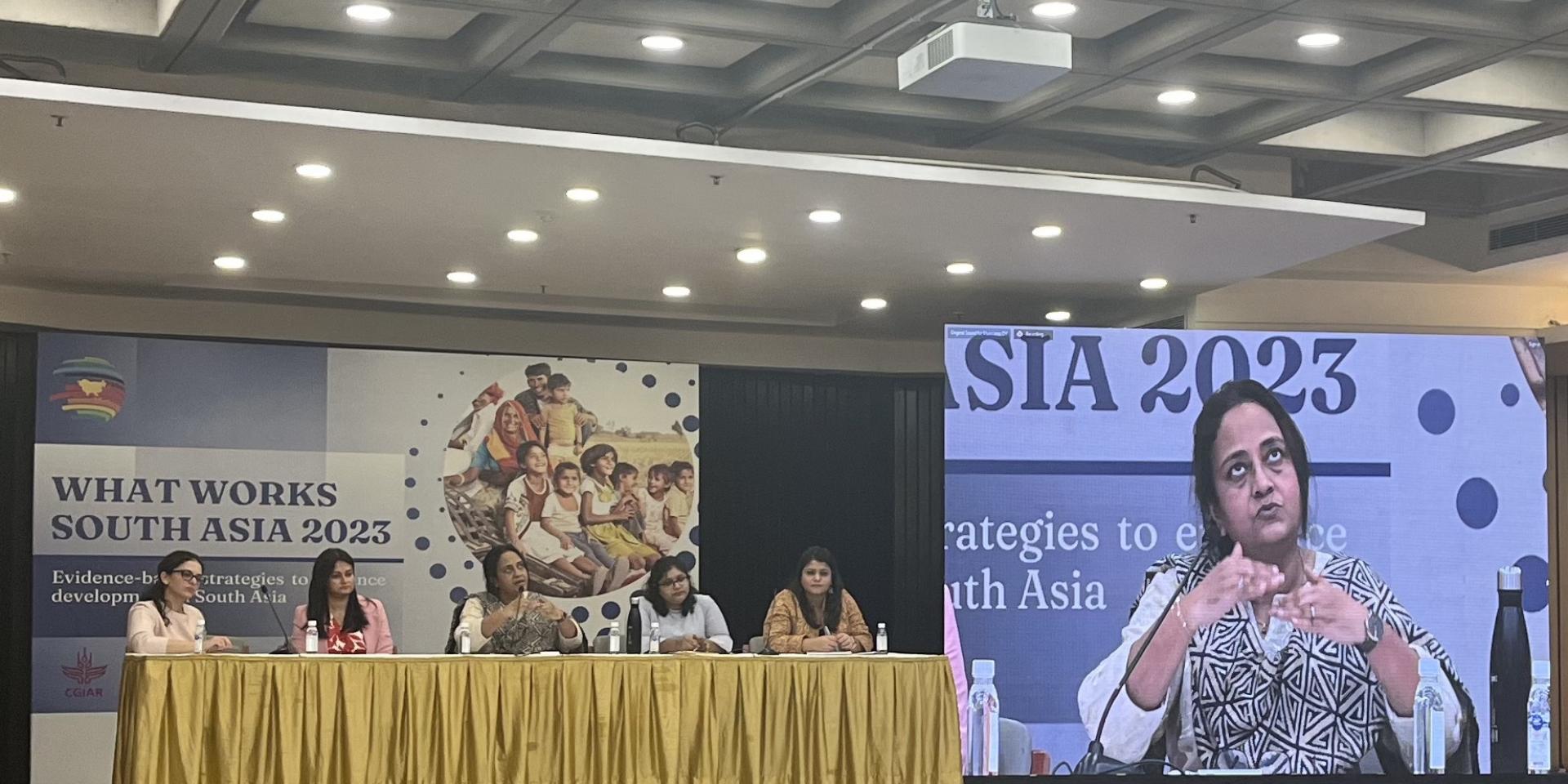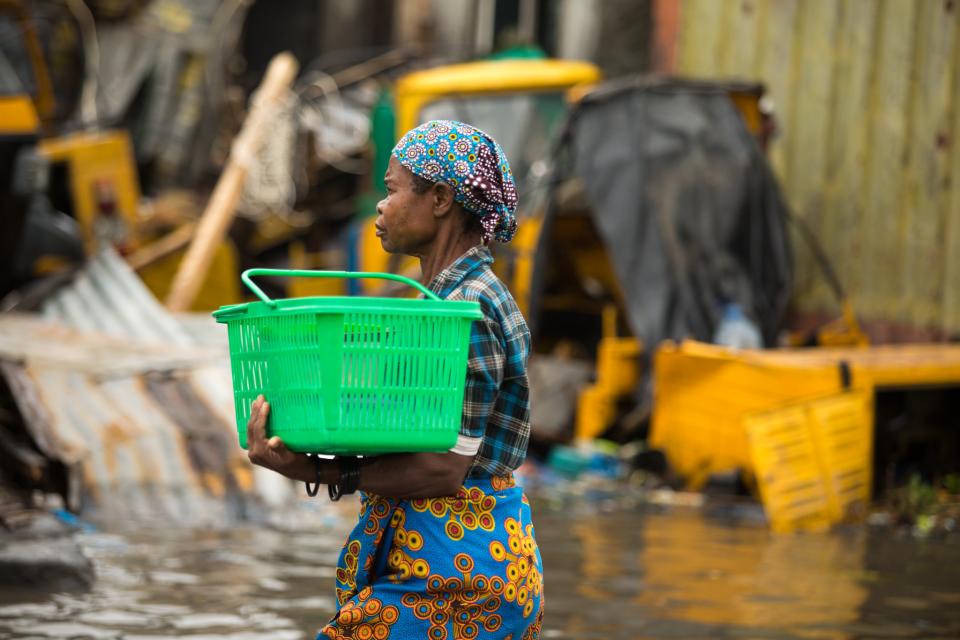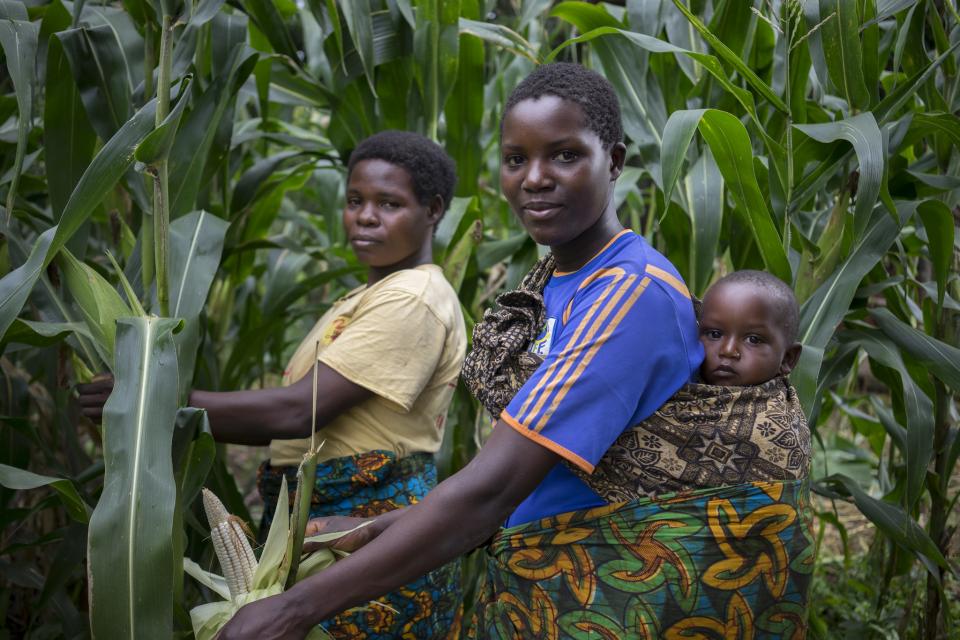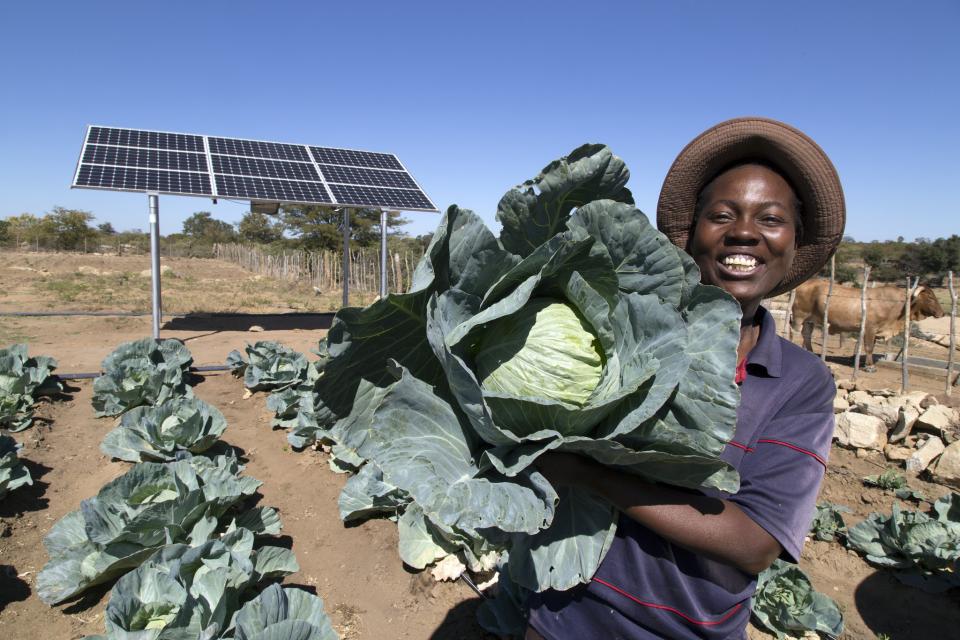What works? Is climate-smart agriculture gender responsive?
 Photo: via Campbell Southeast Asia on X.
Photo: via Campbell Southeast Asia on X.
Climate-smart agriculture (CSA) must account for gender in its design so it doesn’t exacerbate inequalities for vulnerable smallholder farmers—especially women. During the What Works South Asia 2023 conference, panelists examined the evidence about gender within CSA, what really works and where the gaps are.
Climate change, inequalities, and food and nutrition security are three of the greatest development challenges of our time. Climate change exacerbates the challenges already faced by women—especially by women farmers in developing countries—threatening food security and livelihoods. In the face of these daunting challenges, a ray of hope emerges in the form of climate-smart agriculture (CSA). CSA seeks to not only address the immediate threats posed by climate change, but also contribute to sustainable agricultural practices.
The critical need for our agri-food systems to simultaneously nourish a growing population, adapt to climate variations, and dramatically reduce greenhouse gas emissions sets the stage for CSA to play a pivotal role.
What Works conference focused on evidence
The What Works South Asia 2023 conference was organized in New Delhi, India, by Campbell South Asia, an organization supporting evidence-based research in South Asia. The conference provided a place for researchers, development practitioners and policymakers to explore methodologies, innovations, and gaps in evidence for development. The CGIAR GENDER Impact Platform’s evidence module has collaborated with Campbell South Asia over the last few years to produce systematic reviews and evidence gap maps on key themes within gender and food systems.
During the conference, the Platform sponsored a panel discussion led by Dr. Ranjitha Puskur (Lead, Evidence Module of CGIAR GENDER Impact Platform) on what evidence tells us about CSA. This discussion delved into the intricate relationship between CSA and gender to address the challenges faced by vulnerable smallholder farmers, particularly women, in the face of climate change—and what solutions have worked.
Unveiling research and gaps on CSA and gender
After leading a recent systematic review on gender and CSA, Ashrita Saran (Deputy Director of Global Development Network), with her extensive experience in evidence synthesis, began by sharing insights from the review. Its findings showed that women are more likely to adopt improved CSA approaches when they are involved in decision-making and have equal access to information and resources. Ashrita also highlighted critical gaps they identified, such as the absence of robust impact evaluation studies; lack of gender-disaggregated data; and insufficient exploration of long-term outcomes, particularly the impact on women’s time use.
Results from another recent study on women’s empowerment within CSA were shared by Ananya Chakraborty (senior research analyst in the Climate Resilience Practice of the World Resources Institute). She underscored the pivotal role of women’s empowerment in three pillars of CSA: increasing productivity and income, improving resilience and adaptation, and reducing emissions. The study showed the need for an enabling environment for women to access insurance, climate information services, and extension services. Ananya also noted the essential role of extension services for strengthening women farmers’ knowledge, especially if male farmers have migrated out and women have to manage suboptimal plots.
CSA is acknowledged to be knowledge-intensive for farmers—Prapti Barooah (senior research analyst, Natural Resources and Resilience Unit, International Food Policy Research Institute) discussed a recent randomized controlled trial comparing video-based extension and traditional approaches. Although video-based extension helped increase farmers’ awareness and knowledge, it did not always lead to them adopting CSA. Longer-term strategies, Prapti stressed, are needed to increase and improve collaboration between farmers, researchers, policymakers and government agencies when scaling CSA. Scaling CSA requires a shared understanding of objectives, evidence-based decision-making, intentional inclusivity, and a learning-focused monitoring and evaluation approach.
To better integrate gender across three pillars of CSA, Aayushi Malhotra (assistant scientist, Evidence Module, CGIAR GENDER Impact Platform) emphasized the importance of inclusive interventions, hotspot mapping to better target interventions, and strategies to sustain impacts beyond project periods. Her insights underscored the pressing need for more comprehensive and inclusive interventions to address crucial knowledge gaps.
Women’s leadership and decision-making can advance gender equality in CSA
When it comes the practical measures for governments, development organizations and research institutions to address the gendered differences in taking up CSA, panel members suggested:
- encouraging discussions in communities on women adopting CSA practices and social norms that may constrain the women
- addressing the practical needs of women through training
- fostering collaboration with local organizations who often already seek to reach vulnerable women
They emphasized strengthening the leadership skills of women by addressing the disproportionate burden of work on women and the constraints they face, and organizing workshops and training at times and venues convenient for women. Prapti highlighted the need to position women as agents of change rather than merely as victims of climate change. Involving women in decision-making spaces can strengthen their representation and voice.
Filling data gaps requires methodological innovations and synthesis of information
The data on gendered adoption of CSA adoption and its impacts is sparse and patchy. This constrains effective program design and policymaking. The panelists highlighted the challenge of data gaps in CSA—Aayushi argued the importance of creating evidence that treats CSA as a system.
Ashrita and Ananya noted a prevalent gap, in that most CSA projects fail to address women’s issues and that there is a lack of evidence about gender considerations in CSA initiatives.
Filling data gaps, researchers say, requires:
- translational studies, methodological innovations and comprehensive data integration to build robust evidence in CSA
- synthesized information from various sources to develop a holistic perspective of the gender issues for CSA
A collaborative journey forward
After a lively Q&A section, the panel discussion concluded by emphasizing the importance of a collaborative, inclusive and evidence-based approach to gender-responsive CSA. The intersection of gender and CSA is continually evolving as climate change intensifies. The panel discussion provided a valuable snapshot of ongoing efforts, challenges and pathways forward in building a more sustainable and inclusive future for women in agriculture.
As we navigate the complex terrain of climate change and agriculture, the commitment to evidence-based, gender-responsive practices will undoubtedly be critical.


